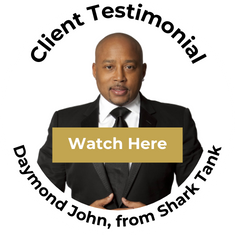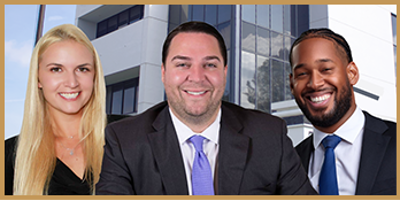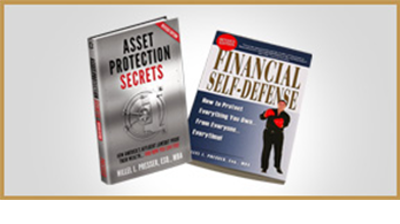

Protect Your Farm and Self From the Lawsuit Epidemic
In Maryland, the Waterkeeper Alliance is suing a farm family for alleged water pollution even though the farm is in compliance with state regulations. If the family loses the case, they may lose their farm. If they settle, they could still lose.
Lawsuits happen for many reasons – divorce, accidental damages and injuries, plus far stranger reasons. And the "far stranger reasons" are more the rule than the exception, says Hillel Presser, a lawyer specializing in domestic and international Asset Protection planning.
The Deerfield Beach, Fla., attorney and author of "Financial Self-Defense" (www.AssetProtectionAttorneys.com), adds, "Litigation is America's fastest growing business, and why not? Plaintiffs have everything to gain and nothing but a few hours' time to lose. Even if a case seems utterly ridiculous, like the guy in prison suing his victims' family, defendants are encouraged to settle just to avoid potentially astronomical legal fees."
Presser strongly encourages seeking the legal counsel for Asset Protection. But he notes a few steps you can take on your own:
- Inventory your assets. You likely own more than you think. Besides savings and retirement accounts, consider any money owed to you, anticipated inheritances and future assets. Property includes homes, vehicles, jewelry, and land. Don't forget to consider intangible assets such as valuable brands, patents and intellectual property.
- Put only assets that are exempt from seizure in your name. Federal and state laws protect some personal assets from lawsuits and creditors. They typically include your primary residence, personal items such as furniture and clothing, pensions and retirement funds, and life insurance. State exemption laws vary; federal laws govern exemptions in bankruptcy.
- Protectively title non-exempt assets. Putting the title to valuable assets in the names of corporations, limited partnerships, domestic trusts and other entities offers some protection. Legal ownership is with an entity that's not subject to your personal creditors' claims.
- You can also combine protective entities, for instance, giving ownership of your limited liability company to a limited partnership. It's best to get professional advice when choosing the entity that'll best protect an asset.
Whether you're worth millions or a few hundred thousand, it's important to not get caught with your assets showing, he cautions. The more you have exposed, the more enticing a target you become. The less you have, the more catastrophic the outcome can be.
"If the average person with $200,000 is sued for $1 million, he's wiped out," adds Presser. "It's not so horrific for the person with $25 million who gets sued for $5 million.
Yes, You Can Lose Everything!
You may think that your wealth is safe and that you don't need protection. But don't delude yourself and accept reality — for every 60 minutes you spend making money, spend 60 seconds thinking about how to protect it!


-
 Schedule an Educational Presentation
Schedule an Educational Presentation -
 Asset Protection Quiz
Asset Protection Quiz -
 Read Our Complimentary Books
Read Our Complimentary Books


